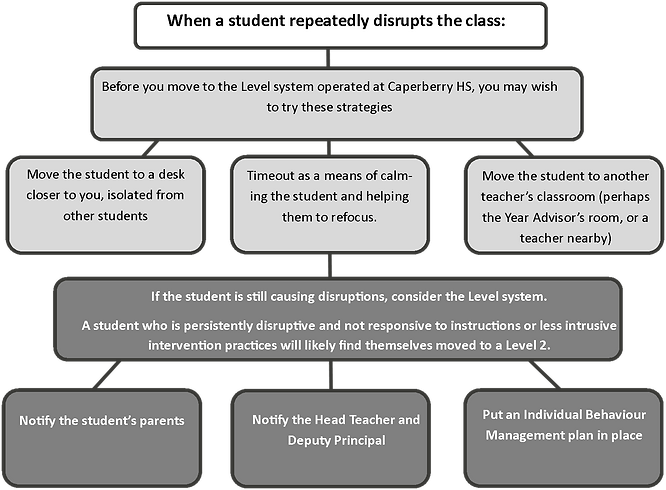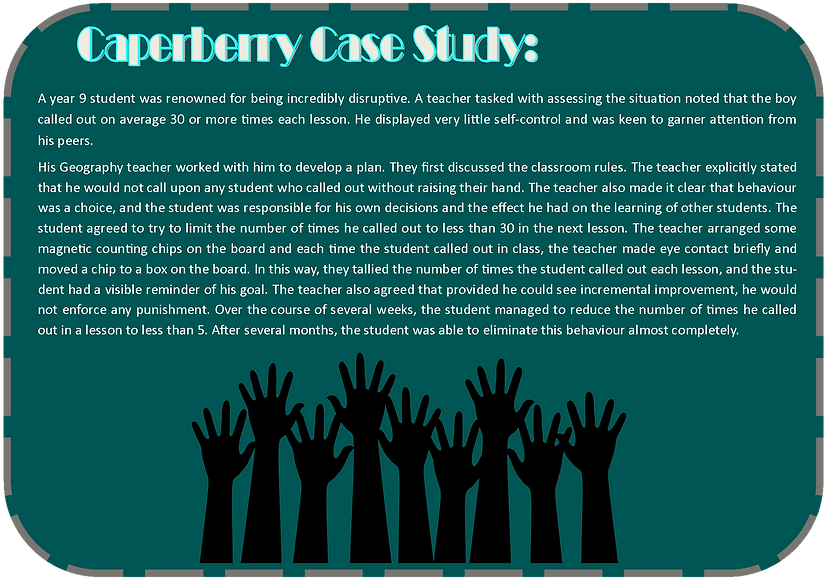What strategies can I employ for a persistently disruptive, challenging student?
When a student is openly defiant, repeatedly disrupts the class or does not respond to ongoing attempts to redirect or discipline, you may need to have some intervention practices planned.

Individual Behaviour Management Plans
An Individual Behaviour Management plan is a crucial strategy for use with students who demonstrate a lack of understanding about how their behavioural choices affect the whole class (Rogers, 2000, p.104). When you discuss the issues with the student, it is helpful to try to understand their motivation for disrupting class. It also useful to consider whether they need to be moved away from certain students who may exacerbate their behaviour. But ultimately, the student needs to be helped to understand that the responsibility for their behavioural decisions rests with the student alone. Cognitive behavioural therapy(CBT) offers some tools for assisting students to develop self-management skills (Lyons, Ford & Arthur-Kelly, 2011, p. 10).
-
Explicitly teach the student self-control, anger management and thinking skills
-
Ask the student to help in setting goals, ensuring that the goals are measurable and can be achieved within an agreed upon timeframe
-
Work with the student to establish an optimal learning environment (for example, sitting near students who will not be a distraction, using timeouts when needed)
-
Be sure to monitor the student’s progress carefully, giving specific praise and encouragement as they achieve the goals they have set and display self-management skills

Some important things to note about this case study:
-
The teacher chose one aspect to work on instead of expecting the student to change many ingrained habits all at once.
-
The teacher gave the student time to re-learn his habits.
-
The teacher monitored progress and provided positive reinforcement when progress was made.
-
The teacher reminded the student of their agreement by nodding and smiling as the student entered the classroom, making eye contact as he set up the chips for the lesson and by briefly commenting on progress as the student exited the class after each lesson.
Individual Behaviour Management plans and the tools of CBT provide the means for teachers to address the behaviour of challenging students and work with the student to effect change. Of course, it will require considerable effort on the part of both the teacher and the student to create and implement such a plan and success is not to be expected overnight. With persistence, however, real progress can be seen for many students.